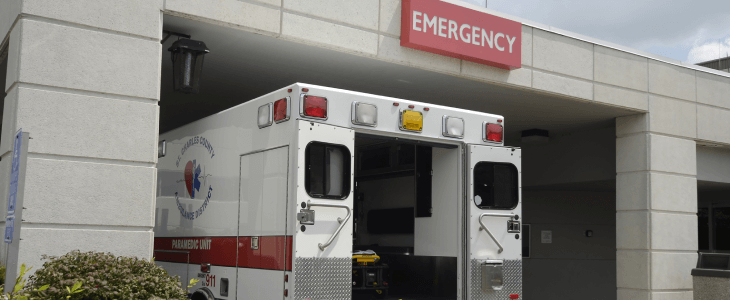When you suffer a health emergency, you expect medical professionals in the emergency room to treat you and make you better or stabilize your condition. However, negligent errors can cause you to suffer injuries or worsen your current health condition. Emergency room negligence can occur due to understaffing, patient overcrowding, or careless oversights by ER staff. The possibility of emergency room errors makes asking questions and having an advocate critical for patients.
Although ER staff can commit various mistakes in patient care, five of the most common emergency room errors include:
Misdiagnosis/Failure to Diagnose
One of the most frequent errors emergency room staff commit includes misdiagnosis or failure to diagnose a patient’s condition. A misdiagnosis may result in a patient receiving the wrong or no treatment. In emergency rooms, some of the most commonly misdiagnosed conditions include heart attack, stroke, aneurysm, spinal cord injury, meningitis, encephalitis, traumatic brain injury, and sepsis. Misdiagnoses can occur due to inadequate patient intake, inadequate patient examination, failure to order diagnostic testing, or misinterpretation of test results or scans.
Medication Errors
Patients prescribed medication for administration in the emergency room may become victims of medication errors. A medication error may involve mistakes in prescribing medication, such as miscalculating dosage or prescribing medication contraindicated by the patient’s medical history, which may result in a patient suffering adverse side effects. Errors can also occur in the pharmacy when filling prescriptions, including dispensing the wrong medication or dosage or misinterpreting the prescription (which can occur when prescribers use non-standard abbreviations). Finally, nurses may commit medication errors by missing or doubling dosages or administering medication to the wrong patient. Nurses or other healthcare providers can cause administration errors by failing to cross-check the patient’s identity against the medication order.
Delayed Treatment
Delayed treatment occurs when medical providers could have started a patient’s treatment earlier, and the delay in treatment causes the patient to suffer injuries or adverse health complications. Delays in ER treatment may occur due to understaffing and overcrowding, which prevent staff from seeing and examining patients promptly or administering treatment when prescribed by physicians. Delayed treatment may also occur when doctors misdiagnose or fail to promptly diagnose a patient’s condition, which may delay getting a patient the correct treatment for their health issue. Delayed treatment can worsen a patient’s illness or condition, potentially to the point where treatments become less effective or a patient requires a more intensive or expensive treatment.
Premature Discharge
Emergency room staff may harm a patient by prematurely discharging them before treating and stabilizing their condition. A premature discharge can occur for various reasons, such as misdiagnosing a patient’s condition as a less severe issue that doesn’t require hospitalization. Healthcare providers may also overlook or disbelieve a patient’s subjective complaints. Some ERs may prematurely discharge patients due to space constraints. When emergency rooms prematurely discharge patients, they put those patients at risk of aggravating their medical problems and ending up back in the hospital in a much worse condition.
Failure to Follow Up
Emergency rooms may also cause patients harm by failing to follow up after discharging a patient. Healthcare providers should follow up with patients after providing a diagnosis, prescribing treatment, and discharging them. They should ensure that their symptoms have not continued or worsened, that they’ve followed through with prescribed treatment, and that treatments have provided the intended effects. A follow-up may alert a healthcare provider that a patient requires re-examination, an alternative treatment, or hospitalization.
Contact a Medical Malpractice Lawyer Today
When you’ve suffered injuries or health complications due to an emergency room error, get the legal help you need to pursue financial recovery and justice from negligent healthcare providers. Contact Rochelle McCullough, LLP, today for a free consultation with an experienced medical malpractice attorney to review your legal options for compensation for medical bills, lost income, and pain and suffering.
